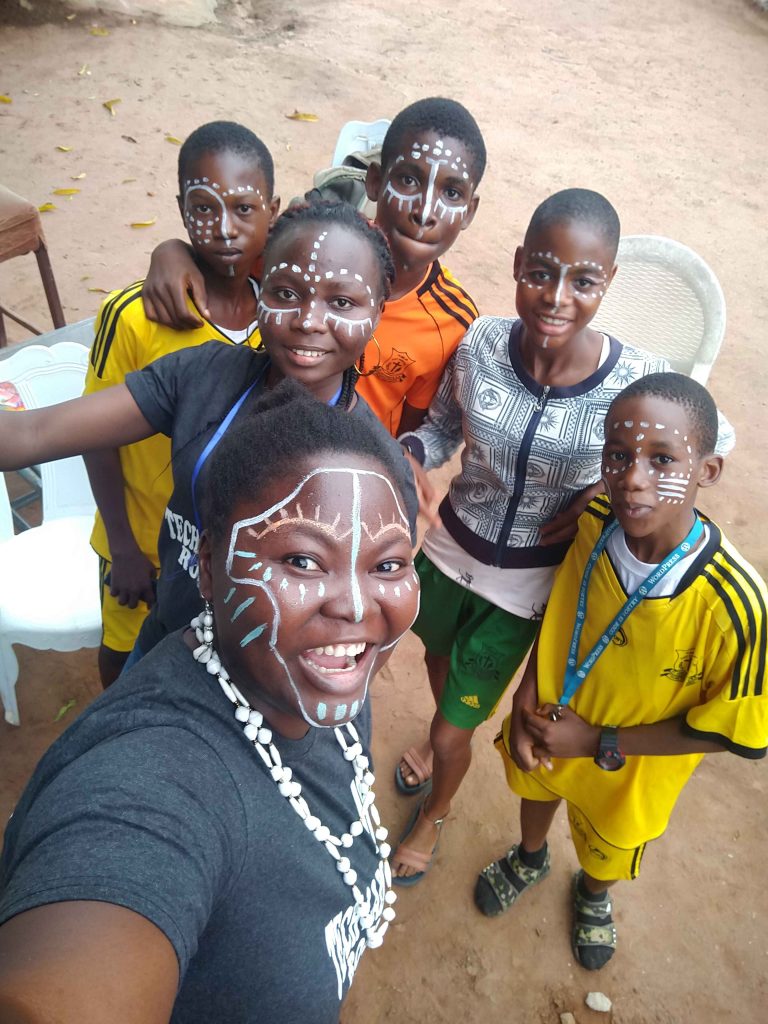We closed the Hub on the 16th of March 2020 due to COVID-19, our new classes were just about to begin for new and old students that week. We printed a one page sheet mentioning why we were closing and how to stay safe for the teenagers to give to their parents at home.
To be honest I had thought the whole virus would be contained in a month back then, right now, I am not sure anymore when it will be contained and how that would happen as it has been tough for people to not open their business or go to work. One thing that scares me is the thought of our wards, majority of who have no access to computers or tablets in their homes, at most maybe a low memory smartphone belonging to a parent or other family member.
How do we stay connected to our wards? Majority of them go to government public schools where they do not own a whiteboard. In these times, some schools in Lagos and maybe other cities in Nigeria are already integrating the virtual learning process for their students, how would the schools in rural towns and villages like us adapt? Schools where a printed paper or phone call is our means of connecting or communicating with parents, not emailing or any other form of school portal.
I read a post on the 5 Big Questions about the Digital Era by Joshua Freedman, the CEO of Six Seconds, and I can’t help but also ask myself everyday;
How are we going to use #technology to connect with our wards? Even if we had a solid e-learning portal, how do we get tablets at the very least into these households? Click To Tweet
For clarity, Joshua’s questions are all valid and were:
- How do we take back control and make technology serve us rather than vice versa?
- As we apply new tech to ourselves & our lives, do we enhance our humanity or destroy it?
- How do we equip our children to navigate this “brave new world” of intense complexity?
- What does it take to shift our culture and business and technology to work together?
- Can we make the future better by applying indigenous wisdom and the sacred technologies of the past?
Translated to Hausa:
- Ta yaya za mu dawo da ikon da muke da sannan mu saka fasaha ta yi mana bauta maimakon mu bauta mata?
- Yayinda muke amfani da sabbin fasaha ga kawunanmu da rayukanmu, shin muna inganta dan adam ko lalata shi?
- Ta yaya za mu ba wa yaranmu damar kewaya wannan “sabuwar duniya” mai rikitarwa?
- Me ake bukata don canza al’adun mu da kasuwancin mu da fasaha don aiki tare?
- Shin za mu iya kyautata rayuwa ta gaba ta hanyar amfani da hikimar asali da abubuwan fasaha masu kyau na zamanin baya?
These are questions we should ask ourselves everyday as Parents, Teachers, Brothers, Sisters, and Students. The world has been changing for a long while, it just took this Pandemic for us to experience not being able to go to a traditional office or school.
Your thoughts are welcomed please…🤔😕
